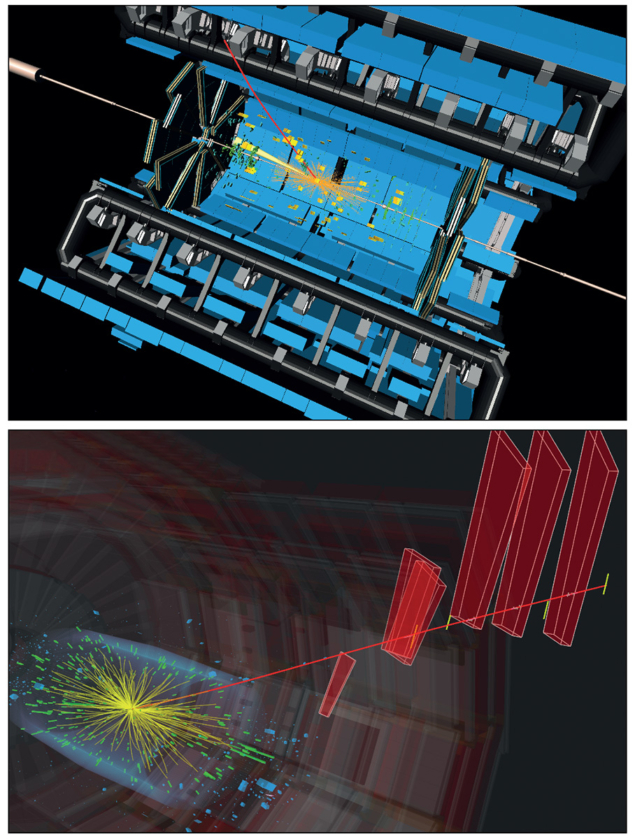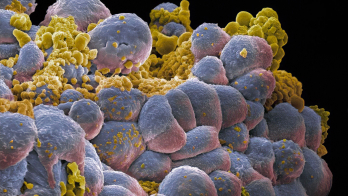
The LHC experiments have surpassed expectations in their ability to squeeze the most out of their large datasets, also demonstrating the wealth of scientific understanding to be gained from improvements to data-acquisition pipelines. Colliding proton bunches at a rate of 40 MHz, the LHC produces a huge quantity of data that must be filtered in real-time to levels that are manageable for offline computing and ensuing physics analysis. When the High-Luminosity LHC (HL-LHC) enters operation from 2029, the data rates and event complexity will further increase significantly.
To meet this challenge, the general-purpose LHC experiments ATLAS and CMS are preparing significant detector upgrades, which include improvements in the online filtering or trigger-selection processes. In view of the importance of this step, the collaborations seek to further enhance their trigger and analysis capabilities, and thus their scientific potential, beyond their currently projected scope.
Following a visit by a group of private donors, in 2023 CERN, in close collaboration with the ATLAS and CMS collaborations, submitted a proposal to the Eric and Wendy Schmidt Fund for Strategic Innovation, which resulted in the award of a $48 million grant. The donation laid the foundations of the Next Generation Triggers project, which kicked off in January 2024. The five-year-long project aims to accelerate novel computing, engineering and scientific ideas for the ATLAS and CMS upgrades, also taking advantage of advanced AI techniques, not only in large-scale data analysis and simulation but also embedded in front-end detector electronics. These include quantum-inspired algorithms to improve simulations, and heterogeneous computing architectures and new strategies to optimise the performance of GPU-accelerated experiment code. The project will also provide insight to detectors and data flows for future projects, such as experiments at the proposed Future Circular Collider, while the associated infrastructure will support the advancement of software and algorithms for simulations that are vital to the HL-LHC and future-collider physics programmes. Through the direct involvement of the CERN experimental physics, information technology and theory departments, it is expected that results from the project will bring benefits across the lab’s scientific programme.
The Next Generation Triggers project is broken down into four work packages: infrastructure, algorithms and theory (to improve machine learning-assisted simulation and data collection, develop common frameworks and tools, and better leverage available and new computing infrastructures and platforms); enhancing the ATLAS trigger and data acquisition (to focus on improved and accelerated filtering and exotic signature detection); rethinking the CMS real-time data processing (to extend the use of heterogeneous computing to the whole online reconstruction and to design a novel AI-powered real-time processing workflow to analyse every collision); and education programmes and outreach to engage the community, industry and academia in the ambitious goals of the project, foster and train computing skills in the next generation of high-energy physicists, and complement existing successful community programmes with multi-disciplinary subjects across physics, computing science and engineering.
“The Next Generation Triggers project builds upon and further enhances the ambitious trigger and data acquisition upgrades of the ATLAS and CMS experiments to unleash the full scientific potential of the HL-LHC,” says ATLAS spokesperson Andreas Hoecker.
“Its work packages also benefit other critical areas of the HL-LHC programme, and the results obtained will be valuable for future particle-physics experiments at the energy frontier,” adds Patricia McBride, CMS spokesperson.
CERN will have sole discretion over the implementation of the Next Generation Triggers scientific programme and how the project is delivered overall. In line with its Open Science Policy, CERN also pledges to release all IP generated as part of the project under appropriate open licences.







